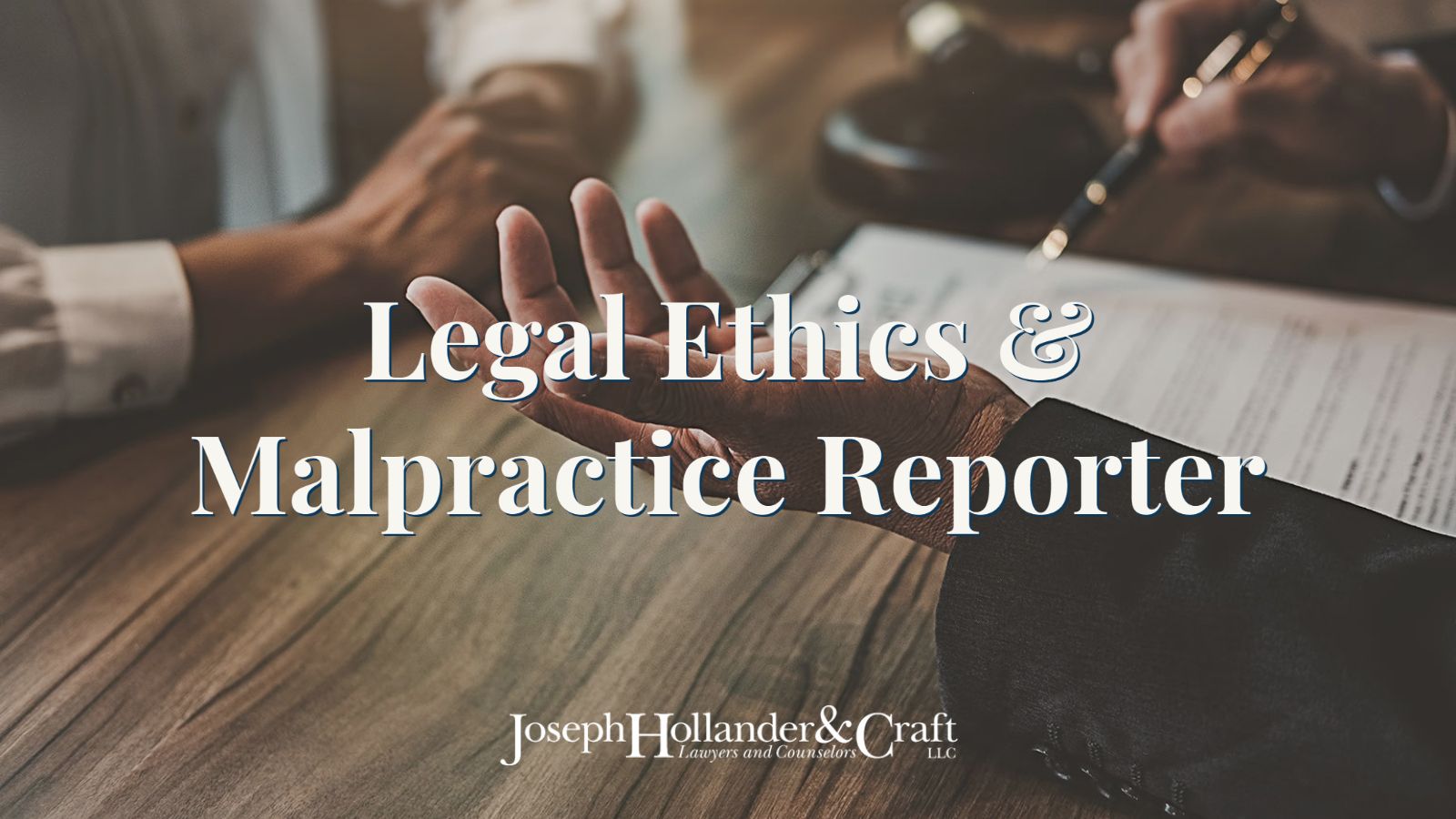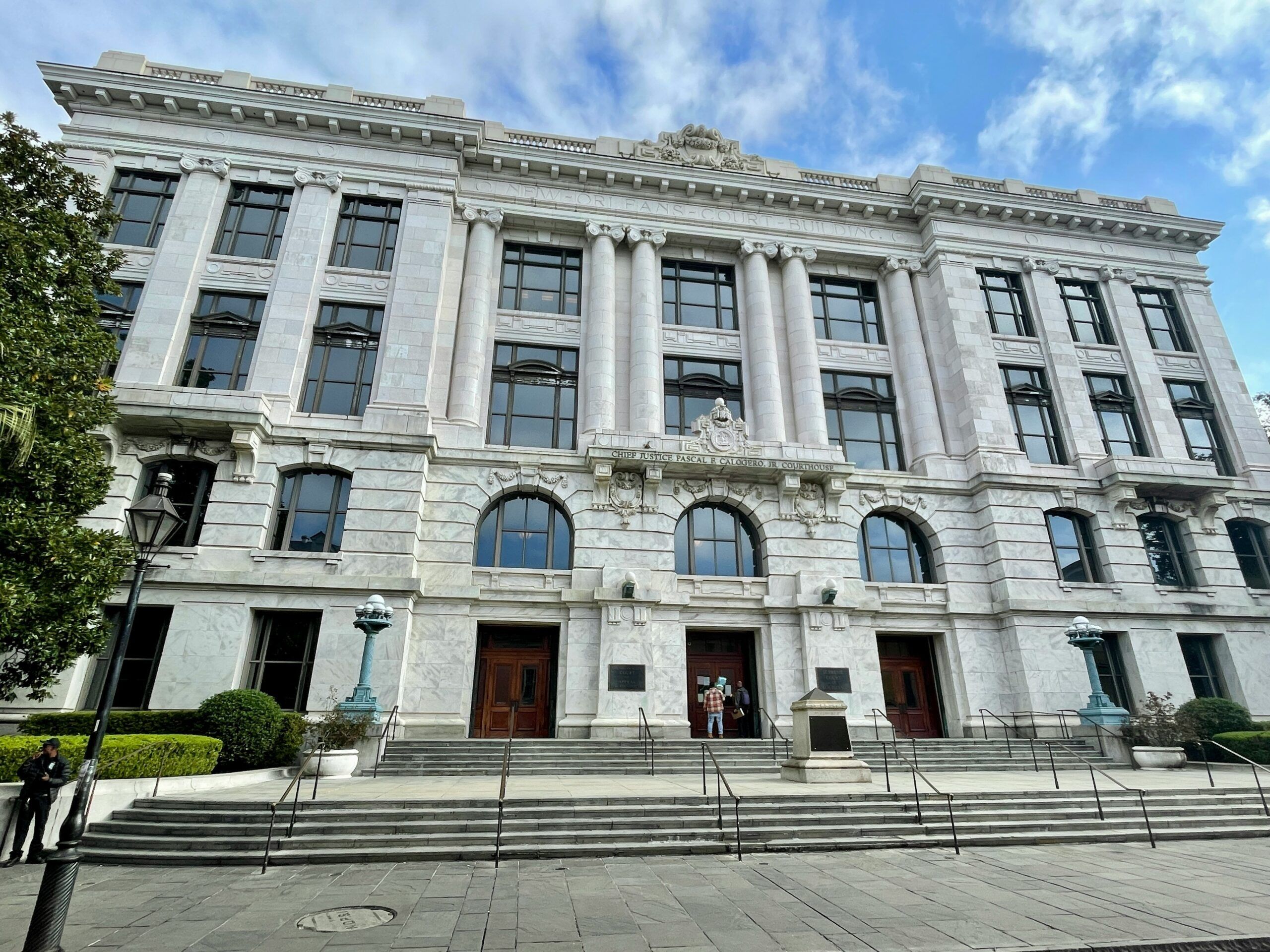Table of Contents
Featured Topic
So You Want to be a Writer: Ethical Issues for Lawyers
New Authority
Proposed Amendments to Model Rules of Professional Conduct
Ethics and Malpractice Research Tip
New Articles Drawn from the Current Index of Legal Periodicals
A Blast from the Past
A Selection from the Diary of John Quincy Adams
EDITED BY: Professor Mike Hoeflich
PUBLISHED BY: Joseph, Hollander & Craft LLC
Featured Topic
So You Want to be a Writer: Ethical Issues for Lawyers
Over the past four decades of my life as a lawyer and law professor, I have been struck by how many lawyers dream of doing something different, either as an alternative to law practice or as a second career. Among the alternative careers that seem to be most often mentioned, three predominate: being a chef, owning a country inn, or being a professional writer. I imagine that there could be ethical issues for lawyer-chefs and innkeepers, but, to be honest, these professions are unlikely to implicate any of the Rules of Professional Conduct. The lawyer who dreams of being a writer, however, particularly if she wants to begin her writing career while still practicing law, does have to consider how novel writing may involve ethical risks. As attractive as the idea of being the next John Grisham may be, it is necessary to think about several of the Rules of Professional Conduct and be sure not to violate them as we pursue our dreams of literary fame.
New Authority
Proposed Amendments to Model Rules of Professional Conduct
On December 15, 2021, the American Bar Association published a discussion draft of possible amendments to Model Rules of Professional Conduct. These proposed amendments were issued in response to concerns that that the Model Rules, specifically Model Rules 1.0, 1.1, and 1.2, as they are currently written do not adequately provide for lawyer due diligence in dealing with clients possibly engaged in money laundering or terrorist financing activities.
The proposed amendment to Rule 1.0 would add a comment, which would read:
[11] A lawyer’s knowledge may be derived from the lawyer’s direct observation, credible information provided by others, reasonable factual inferences, or other circumstances. For purposes of these Rules, a lawyer who ignores or consciously avoids obvious relevant facts may be found to have knowledge of those facts.
The proposed amendment to Rules 1.1 would add the following language to Comment 5 to Rule 1.1:
The duty of competence requires that a lawyer make a reasonable inquiry into the facts and decline or terminate the representation when the lawyer has reason to believe that the client seeks the lawyer’s services in criminal or fraudulent activity. A lawyer may not knowingly assist in criminal or fraudulent activity and should discourage a client from engaging in such activity, but the lawyer may offer to assist in achieving the client’s lawful objectives by lawful means. In some circumstances, competent representation may require verifying, or inquiring into, facts provided by the client. Ignoring or consciously avoiding obvious relevant facts, or failure to inquire when warranted, may violate the duty of competence. See Rules 1.0(f) and 1.2(d), Comment [10].
Ethics & Malpractice Research Tip
New Articles Drawn from the Current Index of Legal Periodicals
Peter Blanck, et al., “Diversity and Inclusion in the American Legal Profession: Discrimination and Bias Reported by Lawyers with Disabilities and Lawyers Who Identify as LGBTQ+,” Discrimination and Bias Reported by Lawyers with Disabilities and Lawyers Who Identify as LGBTQ+. 47 Am. J.L. & Med. 9 (2021).
During the past few years, there has been increasing attention paid to how the legal profession deals with diversity both among lawyers and clients. One major problem has been the lack of hard data about problems. This report focuses on discrimination against important subgroups of the profession. It is eye-opening.
Vito M. DeStefano, “The Limits of Permissible Judicial Campaign Speech in New York,” 94 St. John’s L. Rev. 67 (2020).
More and more states are seeing challenges to the ways in which judges are campaigning. Are these challenges an attempt to violate the First Amendment rights of these candidates? Here is one opinion.
Dyane O’Leary, “‘Smart’ Lawyering: Integrating Technology Competence into the Legal Practice Curriculum,” 19 U.N.H. L. Rev. 197 (2021).
KRPC Rule 1.1, Comment 8 states:
To maintain the requisite knowledge and skill, a lawyer should keep abreast of changes in the law and its practice, including the benefits and risks associated with relevant technology, engage in continuing study and education, and comply with all continuing legal education requirements to which the lawyer is subject.
The question is how to achieve this goal.
Bret Linley, “Note. Quis Custodiet Ipsos Custodes: How the Lack of Institutional Concern for Parties to ADR Protects and Incentivizes Lawyer Misconduct,”45 J. Legal Prof. 115 (2020).
An interesting perspective on how the standards governing alternative dispute resolution can protect unethical behavior and shield unethical lawyers from discipline.
Blast from the Past
A Selection from the Diary of John Quincy Adams
John Quincy Adams, lawyer, diplomat, Harvard professor, and sixth President of the United States, was a dedicated diary writer. His diaries narrate the smallest details of his fascinating life and his inner most thoughts. Like his father, Founding Father John Adams, JQA was a deeply ethical and religious man. In his diary entry on November 21, 1787, he recorded a conversation he had with his teacher and mentor, Theophilus Parsons, Sr., one of the greatest lawyers of his era:
I this morning requested of Mr. Parsons his opinion, whether it would be most advantageous for me to pursue, the professional study in those hours, when I should not attend the office; or whether it would be best to devote those of my evenings, which I shall pass at my own lodgings, to other purposes, and a diversity of studies. He answered by observing, that I could not attend to any useful branch of Science, in which I should not find my account; he would rather advise me, to read a number of ethic writers: it was necessary for a person going into the profession of the law, to have principles strongly established; otherwise, however amiable, and however honest his disposition might be, yet the necessity he is under of defending indiscriminately, the good and the bad, the right, and the wrong would imperceptibly lead him into universal skepticism.
R.J. Taylor, et al. eds., Diary of John Quincy Adams, Vol. 2, p. 319 (1981).
About LEMR
The Legal Ethics & Malpractice Reporter (LEMR) is a monthly publication covering current developments in ethics and malpractice law. This popular, free publication, with close to 8,000 current subscribers, was envisioned by KU Law professor Mike Hoeflich, who serves as the publication’s editor in chief. In partnership with Professor Hoeflich, JHC’s legal ethics and malpractice group is pleased to publish this monthly online periodical to help attorneys better understand the evolving landscape of legal ethics, professional responsibility, and malpractice.
Get LEMR delivered to your inbox!
Make sure you don’t miss an issue of the Legal Ethics & Malpractice Reporter. Subscribe to our email list below to get a notification and digest of each edition as it is released.
About Joseph, Hollander & Craft LLC
Joseph, Hollander & Craft is a premier law firm representing criminal, civil and family law clients throughout Kansas and Missouri. When your business, your freedom, your property, or your career is at stake, you want the attorney standing beside you to be skilled, prepared, and relentless. From our offices in Kansas City, Lawrence, Overland Park, Topeka and Wichita, our team of 20+ attorneys has you covered. We defend against life-changing criminal prosecutions. We protect children and property in divorce cases. We pursue relief for victims of trucking collisions and those who have suffered traumatic brain injuries due to the negligence of others. We fight allegations of professional misconduct against doctors, nurses, judges, attorneys, accountants, real estate agents and others. And we represent healthcare professionals and hospitals in civil litigation.












